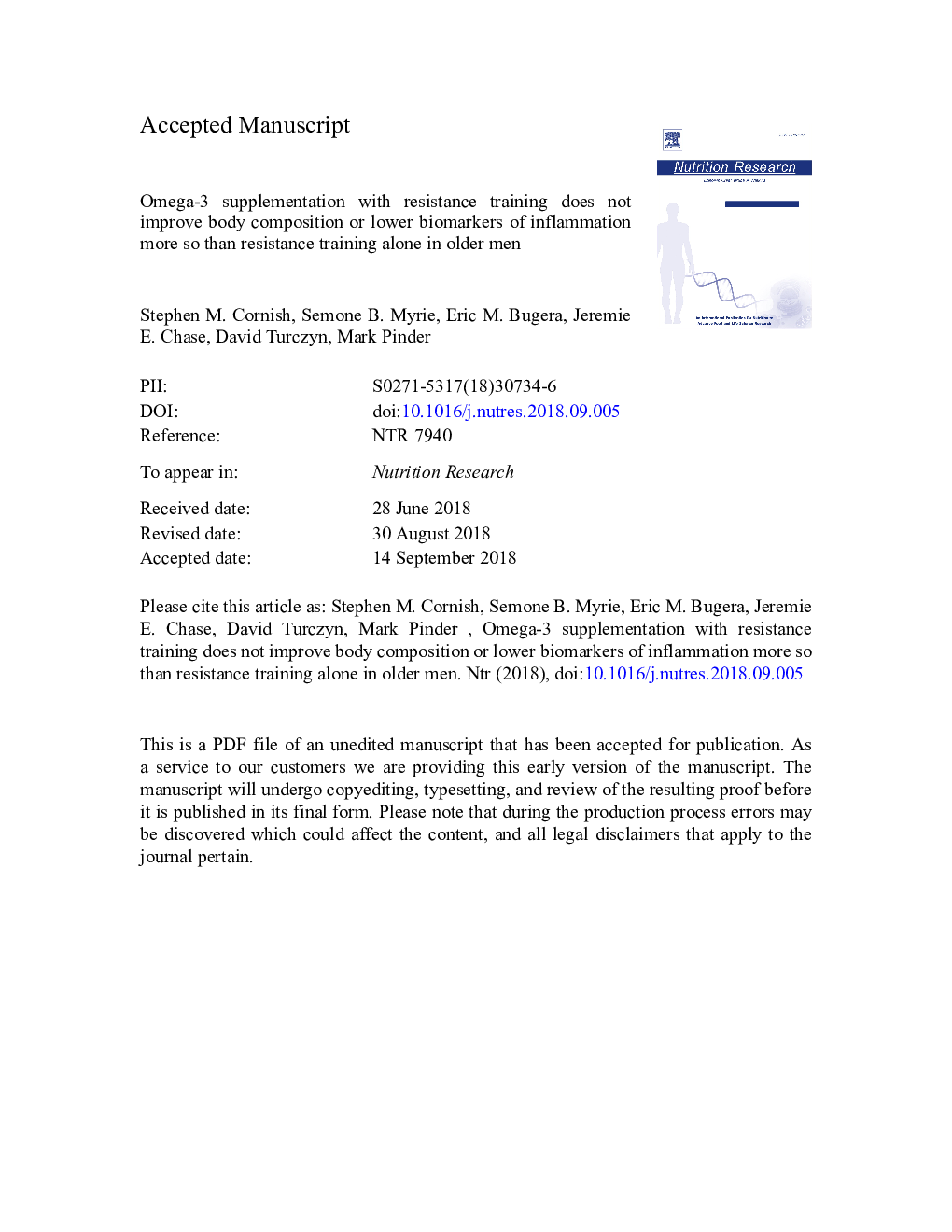| Article ID | Journal | Published Year | Pages | File Type |
|---|---|---|---|---|
| 11015240 | Nutrition Research | 2018 | 30 Pages |
Abstract
The purpose of this study was to evaluate the effectiveness of 3.0 g/d of omega-3 fatty acid (eicosapentaenoic acid and docosahexaenoic acid) supplementation combined with progressive resistance training to improve body composition and lower inflammatory cytokines in older men when compared to placebo and resistance training. We hypothesized that completing a 12-week omega-3 supplementation period along with whole body resistance exercise (3 times/wk) would result in a significantly greater improvement in lean tissue mass as well as a significant decrease in interleukin-6 and tumor necrosis factor-α when compared to placebo. A total of 23 older men (â¥65â¯years old) were randomized to an omega-3 supplementation group (nâ¯=â¯11) or placebo group (nâ¯=â¯12), and all the participants completed the same whole body progressive resistance training program. Baseline and 12-week data collection included body composition, muscle strength, functional ability, and inflammatory cytokines. Results indicated a significant main effect for time (all Pâ¯<â¯.05) for percent body fat (â2.5%), lean tissue mass (+1.1%), lumbar bone mineral density (+1.1%), hip bone mineral content (+1.1%), chest press strength (+31%), leg press strength (+37%), timed-up-and-go (â6.6%), and 6-minute walk distance (+4.5%) from baseline to post 12â¯weeks. No significant effects were noted for the 2 inflammatory cytokines measured (Pâ¯>â¯.05). We conclude that progressive resistance training exercise is an excellent method to enhance parameters of body composition, skeletal muscle strength, and functional ability in older men, whereas omega-3 supplementation did nothing to enhance these parameters or influence inflammatory biomarkers.
Keywords
Related Topics
Life Sciences
Biochemistry, Genetics and Molecular Biology
Endocrinology
Authors
Stephen M. Cornish, Semone B. Myrie, Eric M. Bugera, Jeremie E. Chase, David Turczyn, Mark Pinder,
